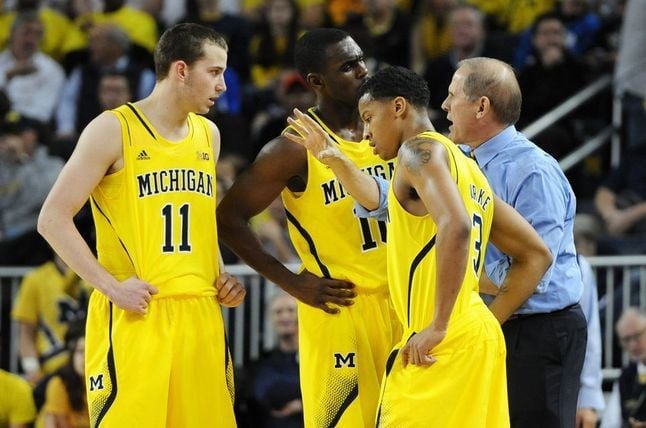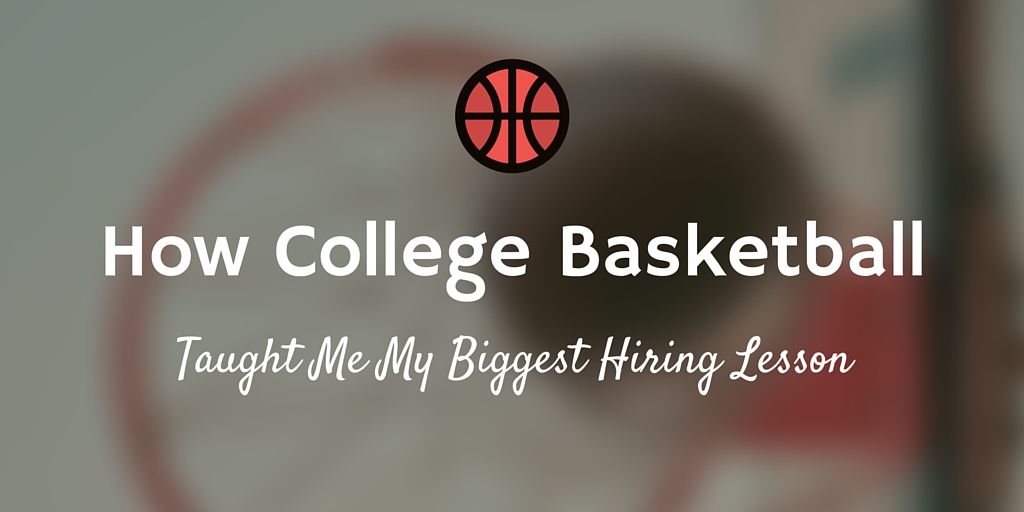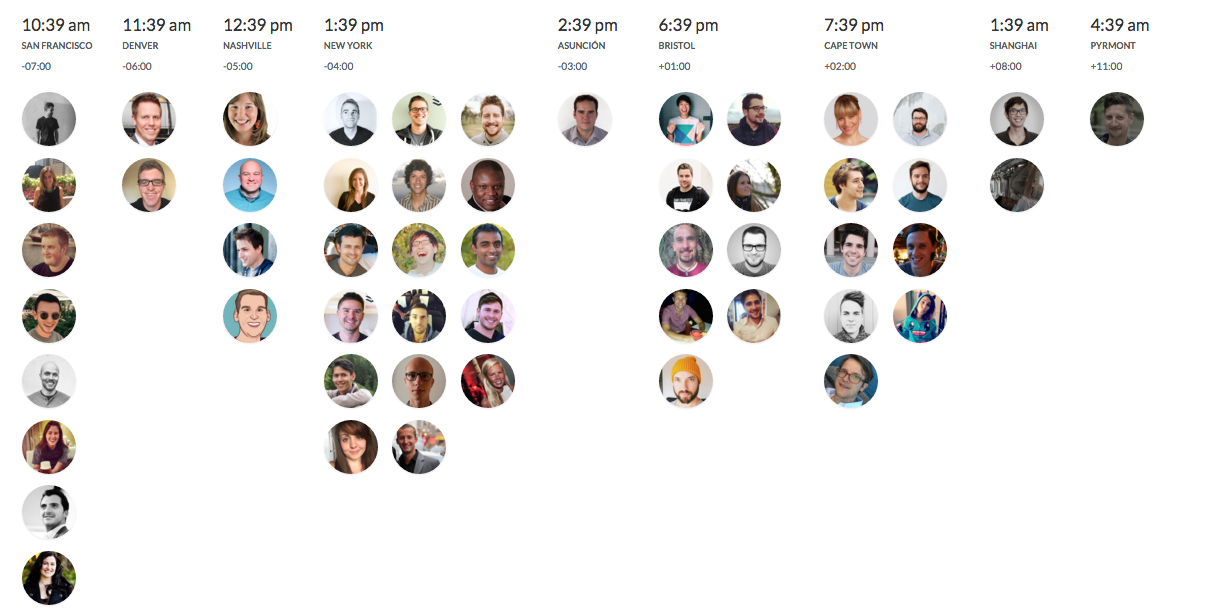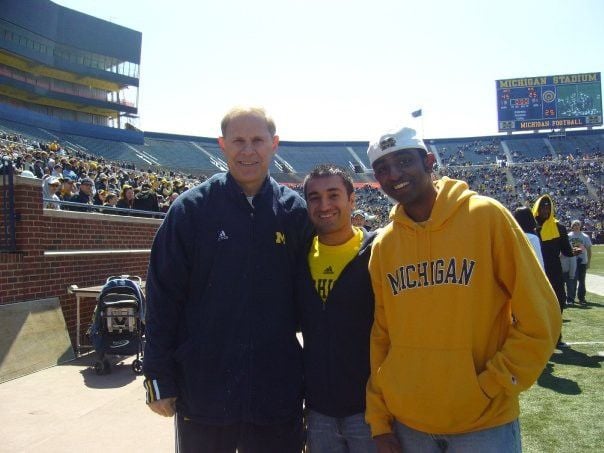I’ve been a college basketball fan for as long as I can remember.
Sports teams are like any other organization: They strive to organize individuals to accomplish shared challenges and goals.
As a Michigan Wolverines fan, I’m continually inspired by how Michigan’s coach, John Beilein, accomplishes these goals. Beilein is the only active collegiate coach to have achieved 20-win seasons at four different levels, as well as one of only 6 active Division I coaches with 700 or more career wins.
What’s unique about Beilein is his recruiting—his typical recruits are not highly sought after by other schools. In fact, 5 of Beilein’s recent recruits weren’t expected to make the NBA at all when they first joined Beilein’s team. They have since gone on to be top NBA draft picks.

What is Beilein’s secret, and how can all organizations learn from it? I believe it’s that Beilein is prioritizing potential to develop within the team over pure talent.
The success he has had in building teams is an inspiration to me. I believe there are parallels between the way college coaches build great teams and the methods that startups and growing companies can use to build their own teams.
The core of Buffer’s hiring philosophy is a lot like John Beilein’s: We prioritize our values well over technical talent and expertise. We look for those who we feel will grow along with us.

How I started hiring the wrong way
When I started building the engineering team at Buffer, I thought I needed to hire the best, most experienced engineers I could find. I only looked for people who went to the “best” schools and had computer science degrees, or tons of experience working at top companies.
I struggled to find candidates who fit this criteria and also felt aligned with our cultural values.
In interviews, I would ask the standard technical questions. Often, the candidates who would thrive in that portion didn’t feel like a good fit with the team, and those whom I thought would fit well sometimes struggled with the technical questions—though I knew they were capable of understanding them given the right opportunities.
There’s great talent everywhere
Through reflecting on my own journey, I began to evolve my thinking.
I remember I bombed my interviews during my first startup experience. Yet I was lucky enough to have an awesome and experienced manager who took the risk to hire me for whatever potential he saw in me.
I had very low confidence in my development ability and felt out of place among my incredibly smart coworkers with years (and decades) of past experience . I’ve had that imposter syndrome feeling for as long as I can remember—but I’m grateful for it because I feel it’s motivated me.
I was so eager to do whatever I could to contribute to the team. With some great support, I hit my stride and finally reached a point where I felt on par with my co-workers.
The personal and professional development I went through during that time was invaluable for both me and my company .
This realization led me to believe that there’s great talent everywhere. With the right environment, opportunity, and mentorship, good team members can develop the expertise needed to thrive on a team.
My ‘aha’ moment: No more technical interviews
With the internet and the right motivation, we believe anyone can become an expert in anything.
Tough technical interview questions, school degrees, and specific past work environments haven’t been an accurate indicator of the potential to succeed on our team.
My ‘aha’ moment happened when I stopped asking technical questions and instead focused on gauging a candidate’s potential to learn and develop within our team.
When I tried out this new approach, I was able to notice two candidates I might not have otherwise: Dan and Niel, neither of whom had taken a formal computer science course or worked at popular tech companies.
Dan worked as a civil engineer in construction before learning how to code on his own, and Niel studied linguistics and was teaching English to students in Taipei. Niel was coding for fun on the side when he joined our team.
Both were incredibly passionate about the product and culture, and it was clear early on that they wanted to do whatever it took to be great engineers at Buffer. After working closely with both of them for multiple years now, I can’t imagine where we’d be without them. Niel recently reflected on his unique journey in our Hipchat “Gratitude” channel:

Great players are made from great teams
After watching coaching inspirations like John Beilein be successful over the years, I’ve come to realize that building a good team or organization is all about continual learning, development, and growth as a group and much less about individual contribution and expertise.
Coaches like John Beilein are completely invested in his players. It’s a culture built around continuous improvement, and this type of support gives players confidence and creates success.
We try to have a similarly supportive culture for new team members at Buffer. With our unique values and approach to management, I’ve felt more like a coach (or a senior-year teammate) than a ‘manager.’
When someone is hired at Buffer, there’s a contract period called the Buffer bootcamp—I see this approach as being very similar to a football or basketball training camp.
Continuous two-way feedback and positive mentorship from the whole team is critical during this early time to achieve mutual success.
If there’s something a team member feels would help the new hire succeed during the bootcamp, they’d give that advice immediately. For us, one of the awesome effects of focusing on culture and the Buffer values has been to establish this type of supportive team environment.
I’m grateful for the strong and connected team we have at Buffer (even as we’re spread out across 11 timezones).

After watching great sports teams develop and seeing our culture-first team building approach at Buffer, I truly believe the best teams are the ones that focus on continual improvement rather than recruiting/hiring the most experienced people from the start.
I was lucky enough to meet Coach Beilein for a brief moment in 2009. The inspiration of him and other great coaches reaches far beyond just sports.

Over to you!
Does this philosophy resonate with you? How have you approached hiring and interviewing, on either side of the desk? I’d love to hear all your thoughts—about basketball or Buffer—in the comments.
Try Buffer for free
190,000+ creators, small businesses, and marketers use Buffer to grow their audiences every month.


